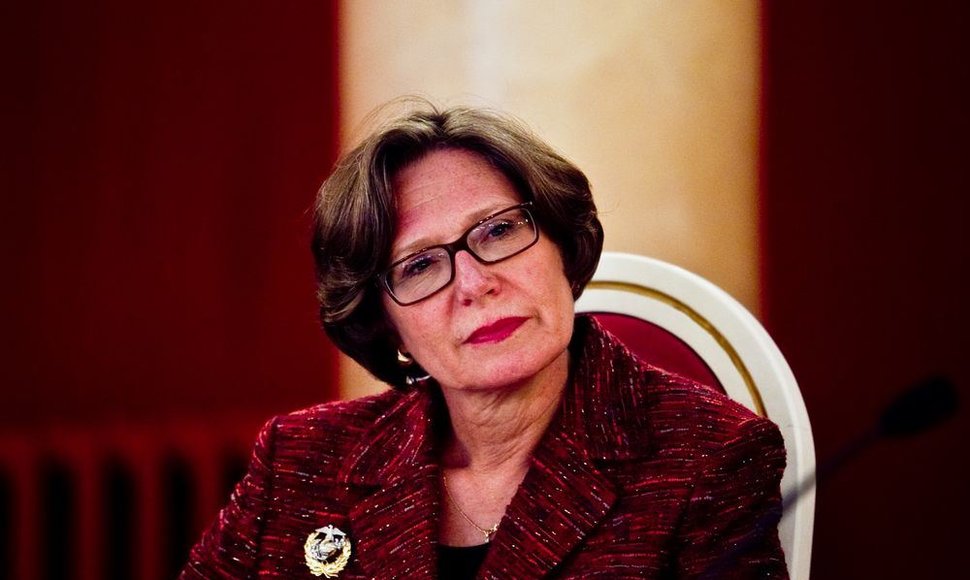She stated the position when asked whether US defense budget cuts would affect the program which involves annual military assistance from the Pentagon to Lithuania's NATO mission in Afghanistan.
"It's very important with respect to the 2 percent commitment. It will be a more competitive environment now for there will be for sure fewer dollars available for that kind of support around the world. Continuing to give resources for the countries that aren't doing much for their own security is going to be difficult," Derse told Vilnius journalists on Friday.
At the same time, she emphasized that such assistance will be earmarked on the grounds of other circumstances, for instance, meeting of international commitments. In her words, Lithuania should not jump to the conclusion that it would be the first among the countries to no longer receive military assistance from the US.
"I said it would be a more competitive environment, obviously, in the future as there are fewer dollars. (...) But there are many contributions that Lithuania makes. And over the years, when defense spending didn't meet the 2 percent goal, Lithuania maintained its international commitments including in Afghanistan, including during difficult periods of time. It's understood and appreciated," Derse said.
Lithuania's Defense Ministry has confirmed that Lithuania would receive about 31.6 million litas (EUR 9.2 m) worth of training and military equipment by 2013. The assistance is planned to cover communications equipment, unmanned aircrafts, night vision and optical devices and individual protective gear.
Lithuania will not be the only country to receive US assistance, which will also be provided to Romania, Hungary, and Poland.
Earlier this week, a new defense policy agreement signed by Lithuania's political parties was presented at the parliament. According to the agreement, the long-term goal is to earmark 2 percent of the gross domestic product (GDP) for the country's defense system.
The political agreement on defense policies for the 2012-2016 period was signed by leaders of the ruling Homeland Union – Lithuanian Christian Democrats, Liberal and Center Union and Liberal Movement, as well as opposition Lithuanian Social Democrats, Labor Party and Order and Justice Party, TAIP union, and the Electoral Action of Poles in Lithuania. The Lithuanian Farmers and Greens Union is the only parliamentary party that refused to sign the document.
Lithuania's current defense spending is under 1 percent of the GDP, although NATO member-states have assumed the commitment of seeking to earmark 2 percent.
2012 05 11
Lithuania's defense efforts a factor in receiving US military assistance
US Ambassador to Lithuania, Anne Derse, says that military assistance from Washington will be more difficult to receive for countries that do not provide sufficient resources for their own security.
Report mistake
Successfully sent
Thank you












